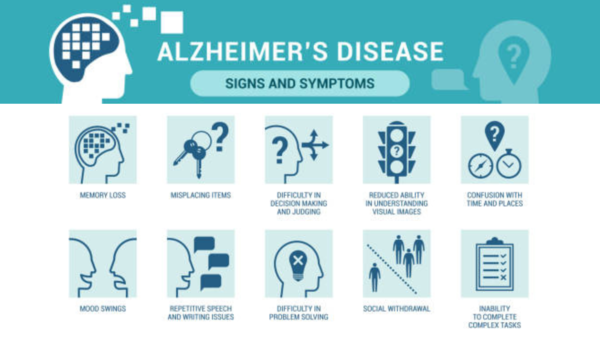The Link Between Depression and Alzheimer’s
Chronic stress is not uncommon in today’s corporate world. Deadlines, competition, and constant pressure to excel are daily experiences. However, long-term exposure to stress has been scientifically linked to neurodegenerative diseases such as Alzheimer’s. Stress causes the production of cortisol, a hormone that, in excess, can damage brain cells, especially in the areas responsible for memory and cognition. Studies show that chronic stress can accelerate mental decline by affecting the brain’s hippocampus, an important area for memory.

Imperfect Health Choices: A Recipe for Mindfulness
Many corporate professionals lead unhealthy lifestyles characterized by poor eating habits, irregular sleep patterns and regular inactivity. Let’s examine how these habits contribute to Alzheimer’s:
1. Bad Food: A diet high in processed foods, sugar and unhealthy fats is detrimental to brain health. These foods increase inflammation and oxidative stress, which are associated with neurodegenerative conditions. Conversely, foods rich in antioxidants, omega-3 fatty acids, and essential vitamins can support brain health and reduce the risk of Alzheimer’s.
2. Lack of Physical Behavior: A sedentary lifestyle not only contributes to obesity and cardiovascular disease but also negatively affects brain health. Regular exercise improves blood flow to the brain, stimulates the growth of new nerves, and reduces inflammation, all of which protect against cognitive decline.
3. Lack of Sleep: Sleep plays an important role in enhancing memory and repairing the brain. People with high stress, fast jobs often sacrifice sleep, which leads to the accumulation of beta-amyloid, a protein associated with Alzheimer’s disease. Long-term sleep deprivation impairs cognitive function and increases the risk of developing Alzheimer’s.
Simple home remedies to get rid of headache
Business Life: Development Area for Mental Health
A business environment often requires long working hours, multitasking, and mental exertion, creating an atmosphere that creates burnout. Exhaustion not only leads to physical health problems but also impairs mental functioning. The extreme demands of corporate life can lead to mental fatigue, which is associated with the shrinkage of brain matter over time.
In addition, many employees of companies ignore mental healthignoring symptoms of stress, anxiety, and depression – all risk factors for Alzheimer’s disease. Focusing on short-term goals and success often comes at the expense of long-term mental health.
Prevention: Change in Business Culture
Although the relationship between lifestyle and Alzheimer’s disease is alarming, it can also be prevented. Companies need to foster a culture that values mental and physical health. Encouraging regular breaks, promoting mental health programs, and providing flexible work arrangements can all play a role in reducing stress and promoting a healthy work life.
On an individual level, professionals should prioritize their health by including exercise, eating healthy foods, practicing mindfulness and making sure they get enough sleep. These simple changes can go a long way in protecting against Alzheimer’s and improving overall brain health.
(By Dr. (Prof) Ish Anand, Co-Chairperson Department of Neurology, Sir Ganga Ram Hospital)
#Stress #unhealthy #lifestyles #busy #business #lives #contribute #Alzheimers #disease #Times #India


